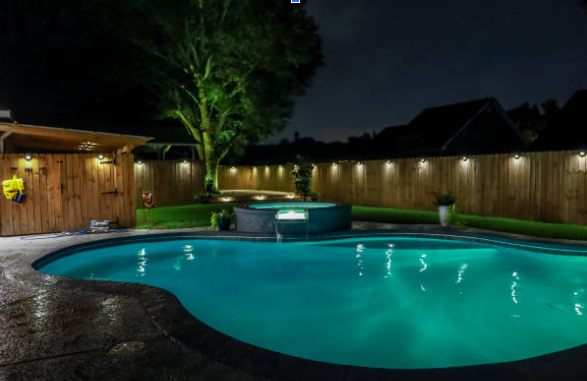Why Pool Safety Inspections Are Crucial for Every Homeowner

Owning a pool is often associated with leisure, relaxation, and family fun. However, the joys of having a pool come with the responsibility of ensuring its safety. Pool safety inspections play a pivotal role in maintaining a secure environment, not just for your family but also for visitors and the community at large. Understanding why these inspections are crucial can help every homeowner make informed decisions about their pool’s maintenance and safety.
The Importance of Pool Safety Inspections
Pool inspections is important for a number of reasons, which include:
1. Legal Compliance and Liability
In many regions, pool safety inspections aren’t just recommended; they are a legal requirement. Compliance with local regulations is crucial for any homeowner with a pool. Failing to adhere to these standards can result in legal penalties and potential liabilities. For instance, non-compliance might lead to hefty fines or even the closure of the pool until safety measures are implemented. Moreover, in case of accidents or injuries, homeowners might face lawsuits if their pool doesn’t meet safety standards.
2. Preventing Accidents and Drowning
Drowning is a tragic yet preventable accident that claims lives, especially among children. According to the Centers for Disease Control and Prevention (CDC), drowning is a leading cause of unintentional injury death in children aged 1–14. Regular pool safety inspections are a proactive measure to prevent such accidents. They ensure that safety features like fencing, gates, pool covers, and alarms are functioning correctly, reducing the risk of unauthorised access and accidental drowning incidents.
3. Maintaining Equipment and Structural Integrity
Pools consist of complex mechanical systems and structures that require regular maintenance and inspection. A comprehensive safety inspection involves checking the integrity of the pool’s structure, examining the condition of pumps, filters, and electrical components. Identifying and fixing issues promptly not only ensures the safety of the pool users but also prolongs the lifespan of the pool, saving homeowners from expensive repairs down the line.
4. Health and Hygiene
Proper pool maintenance is crucial for maintaining water quality and preventing the spread of waterborne illnesses. Regular inspections help in assessing the cleanliness of the pool, ensuring the chemical balance is appropriate, and the filtration system is working efficiently. Neglecting these aspects can result in the proliferation of bacteria and algae, leading to health hazards for anyone using the pool.
5. Property Value and Saleability
For homeowners planning to sell their property, a well-maintained and safe pool can significantly enhance the property’s value and appeal to potential buyers. Having a documented history of regular pool safety inspections provides reassurance to buyers, demonstrating that the pool has been properly cared for and meets safety standards. It can expedite the selling process and potentially increase the property’s resale value.
Read also SEO vs Local SEO: Which Is a Better Option?
6. Environmental Responsibility
Pools require the use of various chemicals to maintain water quality. Regular inspections not only ensure the safe use of these chemicals but also promote environmental responsibility. Properly maintained pools minimise the wastage of water and chemicals, reducing their impact on the environment.
7. Peace of Mind for Homeowners
Knowing that your pool is regularly inspected and meets safety standards brings peace of mind. It alleviates concerns about accidents, structural issues, or health hazards related to the pool. This peace of mind is invaluable for homeowners, allowing them to enjoy their pool without constant worry about safety or potential liabilities.
What To Look Out For When Hiring Pool Inspectors in Australia
When considering hiring pool inspectors in Australia, several key factors warrant attention to ensure a thorough and reliable assessment of your pool’s safety and compliance.
1. Certification and Credentials
Look for inspectors who are certified and licensed to perform pool safety inspections in your specific state or territory. In Australia, inspectors need to be authorized and accredited by the relevant governing bodies, such as the Building Professionals Board or local council authorities. Verify their credentials to ensure they meet the legal requirements for conducting pool inspections.
2. Experience and Expertise
Assess the experience and expertise of the pool inspectors. Inquire about their background in conducting inspections, their familiarity with different types of pools, and their understanding of local regulations. An experienced inspector is better equipped to identify potential safety hazards and provide accurate recommendations for compliance.
3. Comprehensive Inspection Services
Ensure that the inspector offers comprehensive inspection services covering all aspects of pool safety. This includes checking fencing, gates, pool structures, safety features, and adherence to Australian Standards. A thorough inspection should encompass not only safety but also the functionality and integrity of pool equipment.
4.Reputation and Reviews
Check the reputation and reviews of the inspection service or individual inspectors. Seek referrals from friends, family, or real estate professionals who have used their services. Online reviews and testimonials can also offer insights into the quality and reliability of their inspections.
5. Clear Reporting and Communication
A good pool inspector should provide clear and detailed reports outlining the findings of the inspection. They should effectively communicate any safety issues, non-compliance issues, or recommended improvements. Additionally, ensure they are approachable and willing to address any questions or concerns you may have about the inspection process or the pool’s safety.
6. Cost and Timing
Discuss the cost of the inspection upfront and confirm the timing for the inspection. Ensure that the inspector’s fees are transparent and reasonable for the services offered. Also, clarify the timeline for receiving the inspection report, as prompt reporting is essential, especially if corrective actions are required.
By considering these factors when hiring pool inspectors in Australia, homeowners can ensure a reliable and comprehensive assessment of their pool’s safety and compliance with regulations.
Conclusion
Pool safety inspections are not merely a formality; they are a critical aspect of responsible homeownership. They encompass legal compliance, accident prevention, equipment maintenance, health considerations, property value, environmental consciousness, and personal peace of mind. Regular inspections ensure that your pool remains a safe and enjoyable space for your family and guests. Embracing this responsibility reflects a commitment to the well-being of all who use the pool and demonstrates a conscientious approach to homeownership. Therefore, every homeowner with a pool should prioritize and schedule regular pool safety inspections to safeguard their loved ones and the community.





